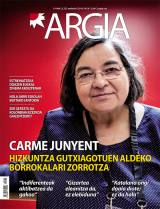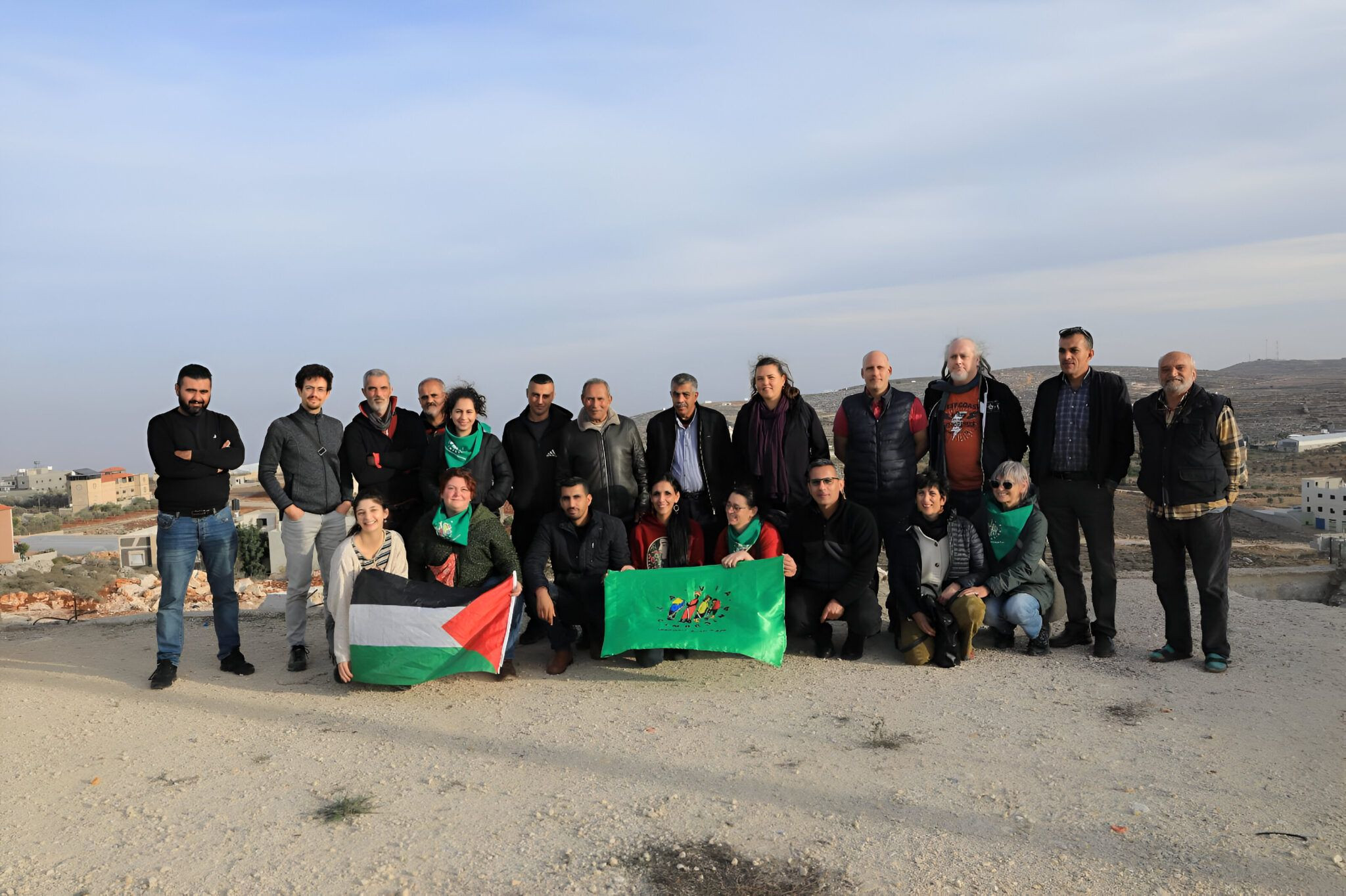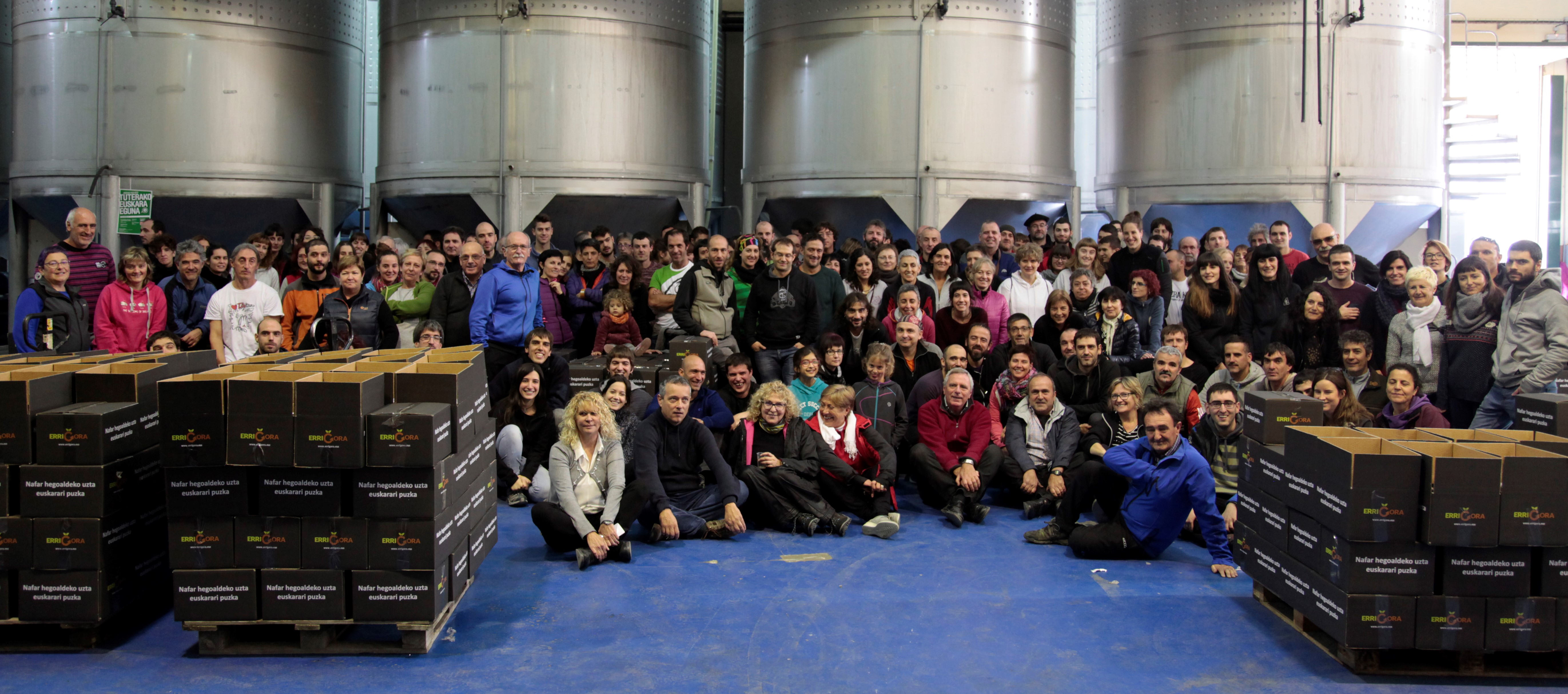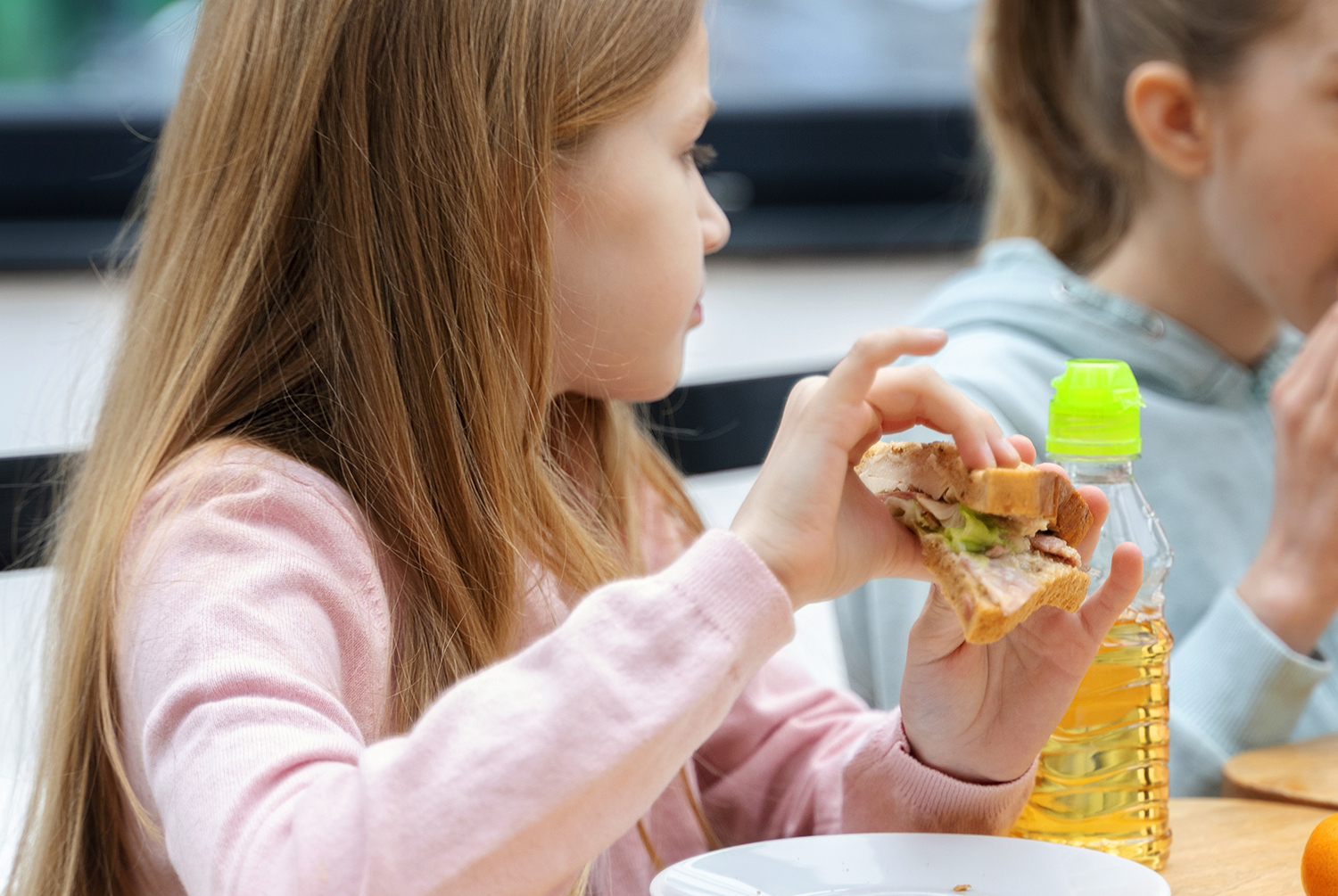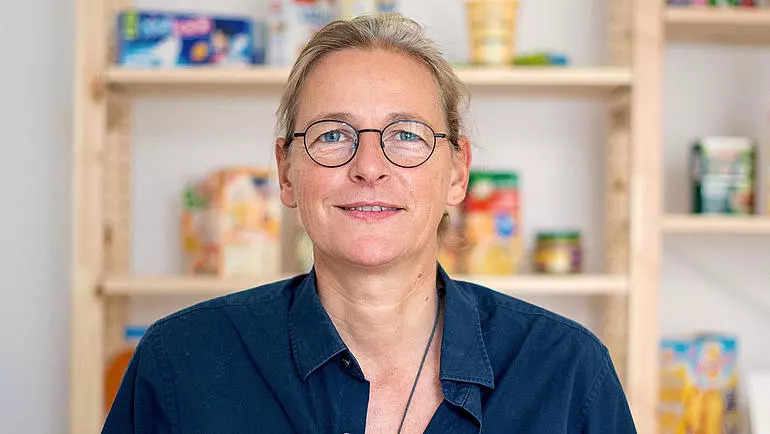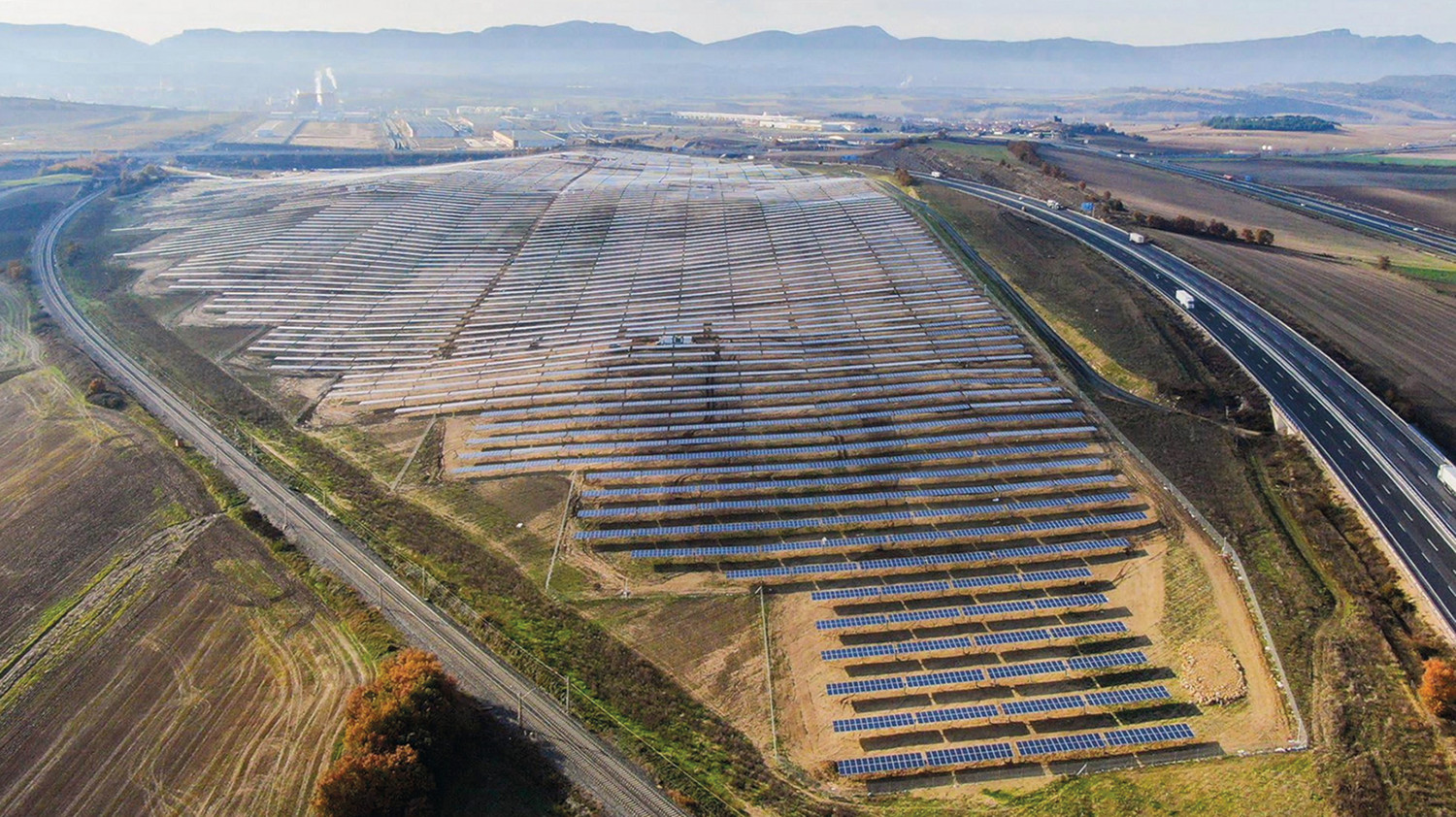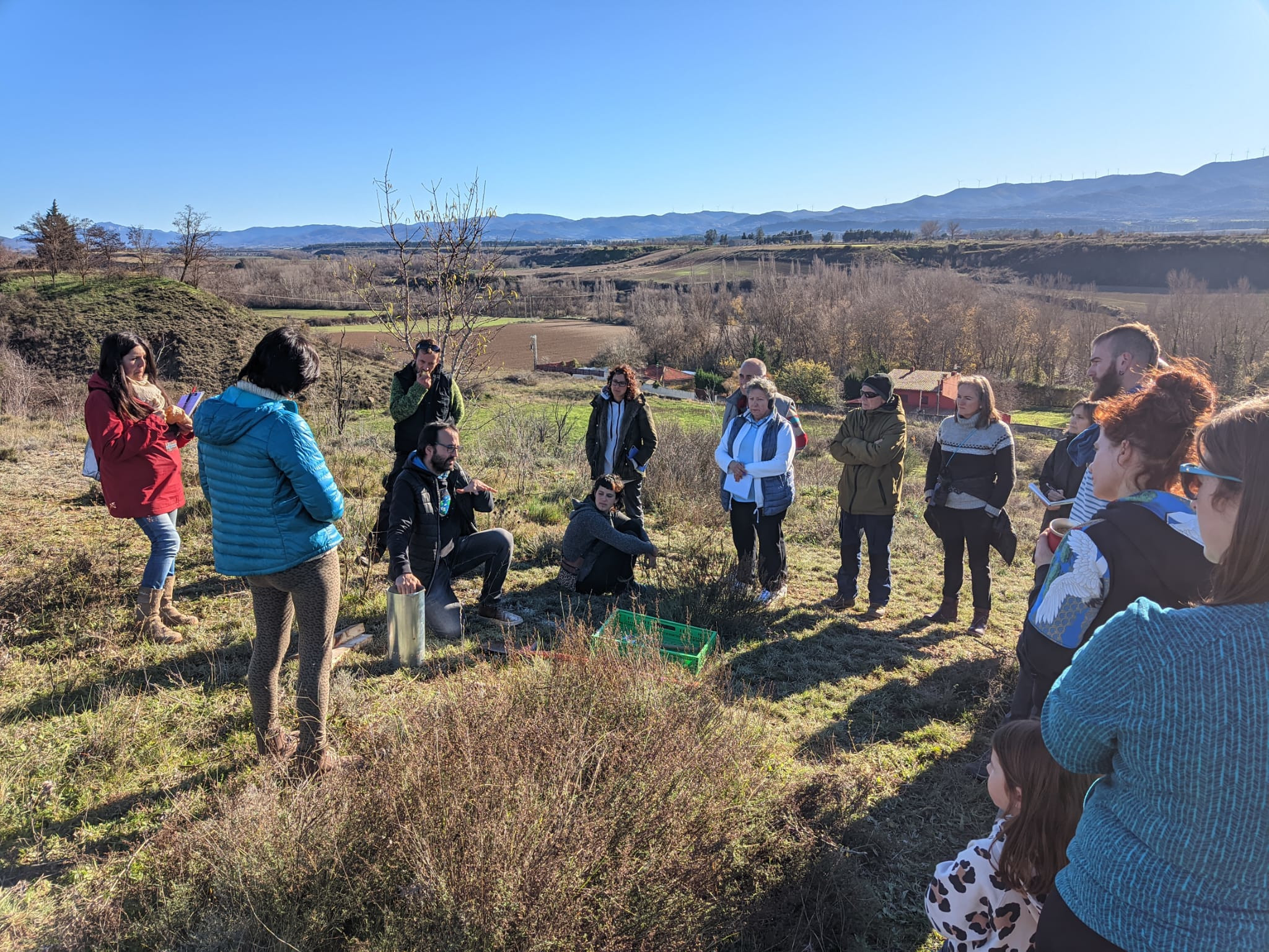The 4 steps to put a dining room in our school
- Since 2000, the Basque Government has been managing the canteens of public centres exclusively through catering. Those of Larrabetzu and Erandio are the only ones who have consistently maintained their management over the years. But in other schools, about three years ago, parents started working on dining projects that guaranteed that students would eat from here, seasonal and, as far as possible, ecological. The Mothers and Fathers Association EHIGE has participated in the project “Inca platera seguro aukera”. In this context, the Basque Government has opened the possibility of carrying out the test for two years: there are four centres involved in the pilot test, of which two have launched the canteen managed in it during this course: Allende Salazar de Gernika y Bekobenta de Markina-Xemein. We've been in the two, if in other schools, parents go with the same intentions, so that they can take the cues of the way forward.

1. Raising awareness, setting goals and sharing
They told us that their first job was to raise awareness both in Allende Salazar de Gernika and in Bekobenta de Markina-Xemein. To do so, Gernika worked on the topic of healthy hamaiketako and a talk from Larrabetzu's parents was organised in Markina-Xemein, and after listening to their experience, they were eager to take the path.
Next, the characteristics or objectives of the dining room that each one dreamed of were defined. Father Dabid Zelaia Zugadi explains the objectives of Gernika: “That children eat healthier, that they favor the economy of the environment and that they care for the environment, because with less chemical food, in addition to the health of children, we take care of the land.”
To carry out all the work, the parents’ associations of both centres have set up a dining committee. Markina's group sought the involvement of parents with different profiles: nutritionist, cook, bank employee, economic consultant...
But both Gernika and Markina, from the very beginning, have seen the need to share and agree with the other fathers and mothers, with the management, with the faculty, with the municipal representatives... Zelaia – Zugadi advises only: “Collaborate from the start. Do not submit the project to the school community once the parents have elaborated it, as there is a risk of an unnecessary path being followed. We have gone step by step contrasting and agreeing on the project.”
The fathers and mothers of both centers have also contacted the agents of the area from the very beginning to learn from them and start collaborating. Both mentioned the collaboration of EHIGE (Association of Fathers and Mothers of Students of Euskal Herria). Experiences from other schools were also reported: Larrabetzu, Erandio, Lekeitio... The Gernikarras also joined ENEEK (Council of Agriculture and Organic Food of the Basque Country), received a great boost from the Lurbizi project and have had as a reference the City of Orduña. The Markinarrak Rural Development Agency made the road very easy for them.
2nd Draft, inclusion in the pilot project of the Basque Government and definition of red lines
The fathers and mothers of the two schools found at work the opportunity to participate in the pilot project of the Basque Government. Two projects were presented in the Department of Education. Zuriñe Egia, coordinator of the Markina-Xemein Parents and Dining Committee, has explained the content of this report: characteristics of the district, school, objectives and concrete approach.
To the question of what it means to participate in the Government’s pilot project, we have been told that the cook hires the cooks as it has done so far and that it is not a little. The kitchen driver has also taken over the Basque Government. In fact, in both Bekobenta and Allende Salazar, there has always been his own kitchen in the dining room. However, it was the catering companies that managed the project and the catering companies brought the food.
Lurdes Imaz of EHIGE, who has been committed to implementing the pilot project, has stated that the Basque Government is not carrying out the “normal” procedure. In other words, no open call has been made, no training has been given, no extraordinary resources have been put in place, and the road is gradually being made. Therefore, the centres participating in it carry greater leadership.
Despite the fact that they decided to launch the pilot project, the two centres say that they have not received any hint from the Administration about what will happen after the two years of testing. Before taking the leap, the schools guaranteed the network, setting red lines: maintaining the same quotas as the parents, maintaining the liquidity throughout the course, being able to work with the appliances they had in the kitchen, taking into account the tastes of the students despite changing the food, respecting as much as possible the work habits of the cooks, keeping the same monitors...

3. Menus, producers and workers
After the project was approved, the menus were elaborated (see table “Menus” on the next page). Based on these menus, the next step was to select the producers and agree on the way of working (more specifically in the “Breaking Myths” table on page 24). To take the daily march of all this, each centre has created a different working group: Being Gernika one of the largest dining rooms in Hego Euskal Herria, the AMPA saw from the beginning the need to hire a coordinator for half a day. This coordinator collaborates in the same office with the head of the dining room who is usually in public centres (as he is part of the teaching staff). Being the smallest Markina school, such a wager has not yet been made, and the Development Agency is the one that, through its employees, reduces the daily workload: it agrees prices with suppliers and plans a month.
Whether through the coordinator, or with the help of the staff of the Development Agency, the AMPA fulfills the responsibilities of the catering company in other centres: preparing menus, keeping accounts, shopping, paying suppliers, hiring monitors (both centres have outsourced through catering companies to the same monitors they had been doing before)... Zelaia Zugadi highlights the difference: “That we are not for profit. That is why we can spend about 40% more on food. That is how we managed to increase the quality (we received no extraordinary help from the government). Thanks to volunteering, our budgets are viable.”
4. Start-up: systematisation and adaptation
Two years later, they have made the project of their dreams come true. The first year requires a permanent comparison of what is designed on paper with practice. For example, they've realized that verdel is dangerous for 2-year-olds because it has many small bones, so on the day they give verdel they decide to give hake to the younger ones. Or the day the rice is made with milk, the two previous dishes must be prepared in a short time. They have ordered too many onions or lentils... Monitors and cooks are the ones that contribute the most to these adaptations. The truth welcomed this statement: “The monitor told me, do you know how the children will eat more fruit?” Since it was granted. For years, we've only given them apple and banana. Enter the kiwi, the pears, the melon -- and that's it. Before, the children ate potatoes and leave the fish on the shore, and now, when they bring the fresh fish from Ondarroa, they eat the whole fish and it is the potatoes that stay on the shore.”
Cooks who were used to cooking frozen food have been changed from day to day, fresh produce now requires more manual work and a different management of times. But with the result, they're all much more satisfied, and they all set as an example the smell of food that spreads in school, especially in fresh fish.
The Gernikarras were clear from the beginning that they wanted to systematize the daily work. Zelaia — Zugadi: “We’ve purchased a computer program that costs a lot of money. We've done this to make our work easier, because that's where we collect nutrition values, suppliers, grams -- and we'll be able to do almost automatically the menu and the calculations of the month. But we've also done it for offspring. We do not want those who come behind us to start from scratch. We want to share this database so that other centers can start their journey with 70%. Like others did with us, we also want to help the next ones.”
What in two years' time?
The centres have decided to take the leap and have given a deadline for the test: “Will we be able to make ourselves economically viable?” is the only doubt they have. The truth has said: “It was very clear on the paper that I would give financially, but also that we would be very tight. That’s why we decided to start from April to June of the previous course, run the test in those three months and, if the money was not given, close the project.” The reopening of doors in September shows that it is economically viable. But he didn't forget the first squeeze. “Every month we have to charge parents equally, but we don’t serve the same number of menus every month. And just April and May are very bad months to balance the money, because they stay to eat every day (in June, for example, only half a month). There are also outlets and the snacks come out more expensive, and we added that we had to invest in the kitchen (we bought a freezer, knives...). We are alarmed, but over time we have seen things balanced with one month and the other. The accounts give it."
Also the director of Allende Salazar of Gernika, Marian Araucua, sees a single anguish: “Scholarship students do not pay a meal fee, and the Basque Government does not pay the scholarship’s money per month, but towards February. That's why our only question is how to maintain liquidity until scholarship money arrives. For the rest, we know it will go well.” Zelaia Zugadi trusts that they will take the necessary decisions to balance the accounts if the needs press: “It is the same quota, the administration puts the same budget and the result is completely different. Our goal is to finish this course with this headline: ‘With the same means, the model has changed’. In this first course you will see the quality of the food we came to give. We have no problem making changes.” Look smiling at the future: “We are going to do the work well, and our goal is, together with EHIGE, to extend this project to other schools. With EHIGE, we are participating in the project Céline Platera, with the same objective: to help schools that want to undertake in the future, to advise them. We put our experience and that of the other pioneering schools there, at the disposal of others. Let us hope that the project will be well valued in two years’ time and that the government will open the door to more schools.”









